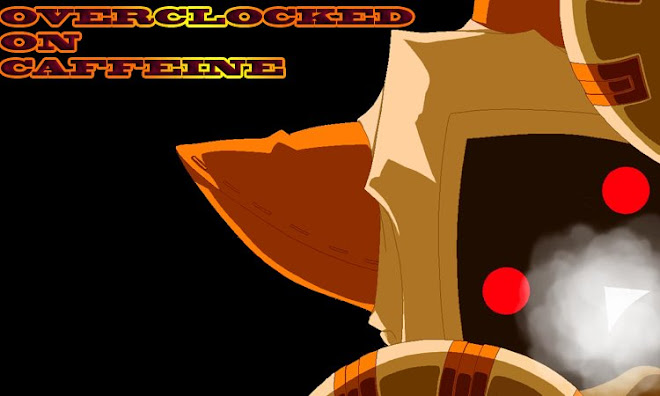Neil Gaiman - The Graveyard Book
312 pages
The temptation to just write 'It's Gaiman, so you know it's going to be good' is a strong one, but I did that already with American Gods, and I don't think I can get away with using it more than once. Damn you, conscience!
The Graveyard Book is, by Gaiman's own admission, a loose attempt at a modern day reinterpretation of The Jungle Book (the original Rudyard Kipling version, as opposed to the Disney version which people are more than likely more familiar with). The story opens, as all the best children's stories do, with a murder, a family killed by the man Jack. Only the youngest of the family, a toddler, manages to escape, wandering down to the local graveyard, where he is taken in and cared for by the local residents - in this case, the ghosts of the dead interred in the graveyard. He is named Nobody - Bod for short - given the Freedom of the Graveyard and, as he grows, learns how to haunt, fade from sight, and about the night that took his family from him.
For a children's book, Gaiman spares none of the punches, as expected. Gaiman's always been a fan of the G.K. Chesterton quote about how all children know about the monsters that wait in the dark, biding their time, and how it is the duty of the writer to tell them that while they do exist, they can also always be beaten. There are dark things out there. Evil things. But never doubt for a second that with a little cunning and bravery (always the most important characteristics in the fairy tales of old) anything can be overcome. Even a night-gaunt can be a friend in times of trouble if you know the right words. Never once though, does he talk down to the audience. The text is simplified just enough to let younger readers follow along, but still retains the typical wit and sophistication we've grown to expect from Neil.
The book is laid out in episodic, almost self-contained fashion, each chapter building on the last. The fact that each chapter's also the perfect length for bedtime reading probably isn't entirely unintentional. As the story grows, we follow Bod, from a toddler, to a teenager. As with every Gaiman story, it's the details and touches that make the book a pleasure to read; learning how to deal with 400 years worth of changing customs and manners through the various dead people buried in the graveyard; werewolves calling themselves the Hounds of God, believing that they are charged with destroying evil wherever it is found; ghouls, having lost their memories, naming themselves after the titles of famous rulers and leaders (not the names - the titles) making their home in a city of wrong angles... it all adds detail upon detail to an already engaging storyline that, at its heart, deals with the rewards and tragedies of growing up
Everything comes together neatly at the end, as you realise everything has been relevant and leading up to the finale. Every weapon in Chekhov's Arsenal is fired, and evil receives its just rewards. There are still mysteries left unresolved, but they're the best kind, the ones that make you wonder about the greater world and what else might be out there. It ends, once again, in classic Gaiman fashion, on a bittersweet note. Friends are lost and the world moves on, but it's never the end for the people left behind. Bod, like Mowgli before him, leaves the comfort of his home to rejoin the rest of the world, scared, but stronger for it. This, along with the lesson about defeating the monster above, is something every child - and more than a few adults - should learn to remember more often. Gaiman is the kind of storyteller we all wish we could've had as a child. If you know any, do them a favour: introduce them to this book. They'll thank you for it someday.
Tuesday, April 28
Subscribe to:
Post Comments (Atom)




No comments:
Post a Comment